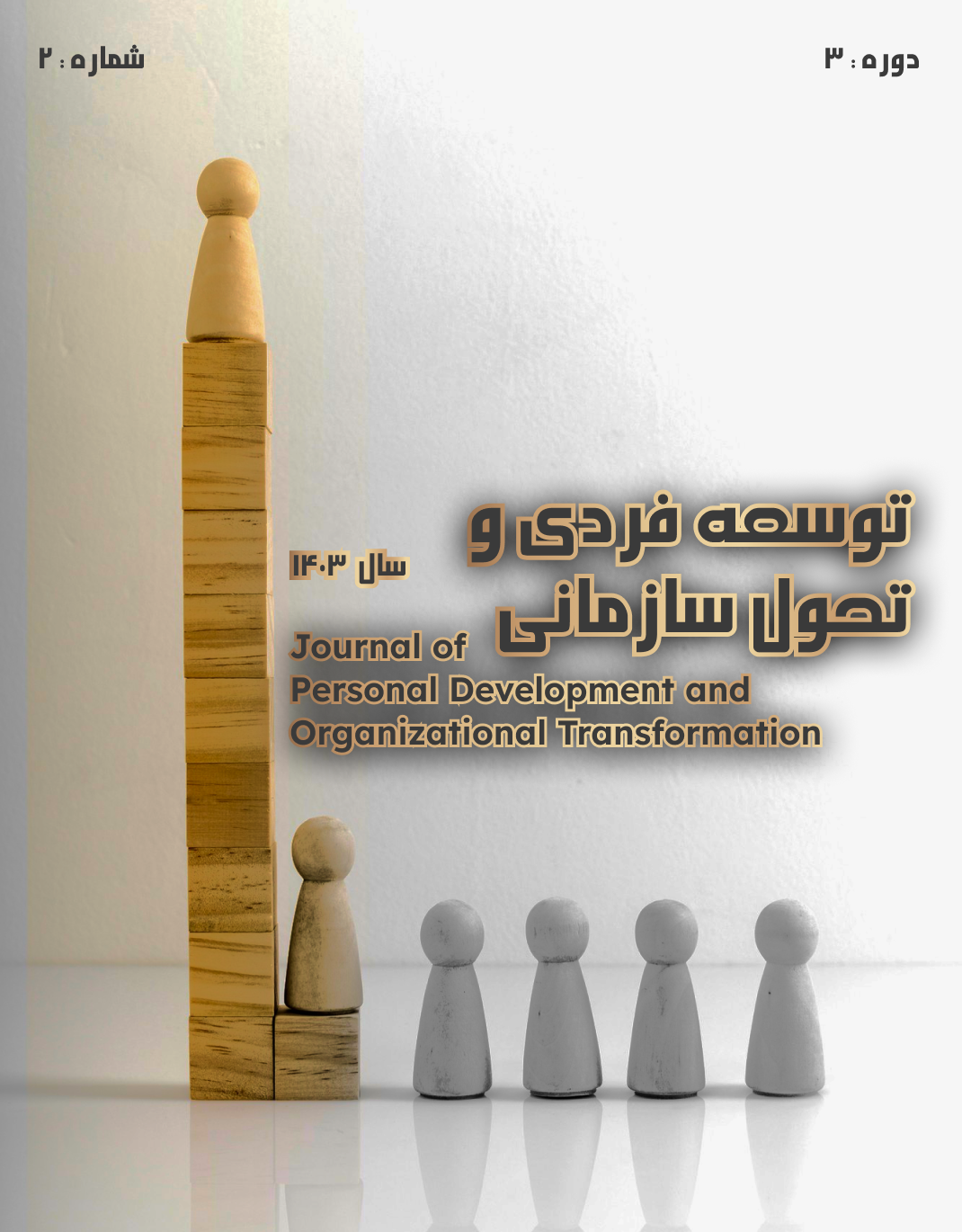Discovering the Process of Corruption Formation in Iraqi Public Organizations
Keywords:
The process of corruption formation, Glazer's family process, stages of corruption formation, Iraqi government organizationsAbstract
The aim of this study was to discover the formation process of political, social, economic, administrative, and international corruption in Iraqi public organizations. This fundamental research employed a qualitative approach based on the grounded theory strategy using Glaser's framework. Semi-structured interviews were conducted with managers and experts in Iraqi public sector organizations, selected through theoretical sampling until data saturation was achieved with 21 participants. Trustworthiness was ensured through Guba and Lincoln’s four criteria. Data analysis included both substantive and theoretical coding stages. The results revealed a six-stage process for corruption formation: accumulation of facilitating conditions, activation of the motivational corruption system, formation of deviant actions, design and institutionalization of the corruption path, structural stabilization and reproduction of corruption, and moral numbness and normalization. Ultimately, this sequence led to the emergence of five distinct types of corruption: political, social, economic, administrative, and international. The proposed model offers a conceptual framework for understanding the developmental mechanism of corruption in Iraq’s public sector and serves as a basis for designing targeted preventive and corrective strategies at each stage of corruption emergence.
Downloads
References
Al-Ali, Z. (2014). The Politics of Corruption in Iraq. Middle East Journal.
Al-Ali, Z. (2019). The Politics of Corruption in Iraq Post-ISIS. Middle East Journal.
Al-Moulawi, A., Al-Rikabi, H., & Al-Khafaji, H. (2018). Towards a National Strategy to Combat Corruption in Iraq. Center for Studies and Planning Bayan Publications.
Darwish, S. (2023). Iraq's Administrative and Financial Corruption: A Perspective. Open Journal of Business and Management, 11(6DO - 10.4236/ojbm.2023.116151). https://www.scirp.org/journal/paperinformation?paperid=128669
Fazouni, M., & Zare, S. (2022). Approaches to Preventing Administrative Corruption: An Essential Necessity for Establishing a Healthy and Transparent Government. Quarterly Journal of Accounting and Management Perspective, 3(33).
Ghorbani, A. (2021). The Impact of Downsizing the Government on Reducing Administrative Corruption. Legal Studies, 4(1), 33-51.
Hamzany, J. S. (2018). Corruption and Education in Iraqi Kurdistan Southern Illinois University at Carbondale]. https://opensiuc.lib.siu.edu/dissertations/1567/
Ibrahimy, M. M., Virkus, S., & Norta, A. (2023). The role of e-government in reducing corruption and enhancing transparency in the Afghan public sector: a case study. Transforming Government: People, Process and Policy, 17(3), 459-472. https://doi.org/10.1108/TG-10-2022-0135
Johar, M., Meh Ravaan, M., Rouhi Abad, S., & Farkish, H. (2023). Combating Administrative Corruption in Iraqi Kurdistan from the Perspective of Good Governance. Global Politics, 12(3), 247-274.
Khan, M. (2012). Corruption and Governance in Iraq. Transparency International.
Llarena, Z. (2023). Organized Corporate Crimes Using UNCITRAL Arbitration Framework Development for EPC Disclosure Concerning Epistemic Corruption and Pharmaceutical Fraud of Off-Label Medicines as Health Regulation and Policy. International Journal of Communication and Public Relation, 8(1), 40-55. https://doi.org/10.47604/ijcpr.1787
Montazeri, H. M., Vahdati, H., & Mousavi, S.-N. (2023). A Model of Failure in Combating Administrative Corruption in Iran's Public Organizations. Iranian Management Science Association Quarterly, 18(72), 93-113.
Niazi, Z. (2023). Explaining the role of electronic government in reducing corruption and the effectiveness of government transparency along with the solutions and challenges of transparency in the government. [Research]. Journal of Administrative Studies and Researches, 5(18), 40-49. http://jasr.smtc.ac.ir/article-1-305-fa.html
Pavlova, E. (2020). Corrupt governance: Self-defeating anti-corruption rhetoric and initiatives in Russia. New Perspectives, 28(2), 205-222. https://doi.org/10.1177/2336825X20911513
Persists, W. C. (2021). Inequality, education, and corruption. In The Oxford handbook of the quality of government (pp. 427-446). https://doi.org/10.1093/oxfordhb/9780198858218.013.21
Rahpeyma, A., Naderinasab, M., & Nasiri Farsani, M. (2024). Analysis of Corruption in the Managerial Elections of Sports Federations and Its Impact on Development Strategies. Dynamic Management and Business Analysis, 3(2), 34-50. https://doi.org/10.22034/dmbaj.2024.2040251.1110
Rezaeisiabedi, A. (2017). Strategies for Combating Administrative Crimes and Economic Corruption in Government Organizations. Gavan Publications.
Sajad, J. (2023). The Mechanisms of Corruption in Iraq. https://blogs.lse.ac.uk/mec/2023/03/30/the-mechanisms-of-corruption-in-iraq/
Tabiyanian, J. (2022). Organizational and Managerial Factors Affecting Financial Administrative Corruption in Public Organizations. Management and E-Commerce, 122-141.
Taghva, M. R., Masnavi, H., Taghavifard, M. T., & Zarandi, S. (2023). E- Governance Development Model Towards Anti-Corruption in Iran. Public Management Researches, 16(60), 163-190. https://doi.org/10.22111/jmr.2022.43343.5841
Talab, H. R., Maki, M. I., Mohammed, Y. N., Flayyih, H. H., & Ibrahim, A. M. (2019). The Role of e-Government on Corruption and its Impact on the Financial Performance of the Government: An Empirical Analysis on the Iraqi Government. Journal of Engineering and Applied Sciences, 14, 1349-1356. https://doi.org/10.36478/jeasci.2019.1349.1356
Tavoosi-Baghsiyeh, H. (2022). The Role of IT and E-Government in Creating Transparency and Reducing Administrative Corruption.
Wei, Z., & Zhu, Y. (2021). Public Corruption and the Allocation of Government Contracts. Review of Financial Economics, 41(1), 3-22. https://doi.org/10.1002/rfe.1157
Wu, A. M., Yan, Y., & Vyas, L. (2020). Public Sector Innovation, E‐government, and Anticorruption in China and India: Insights From Civil Servants. Australian Journal of Public Administration. https://doi.org/10.1111/1467-8500.12439
Zhang, H., Song, Y., Tan, S., Xia, S., Zhang, H., Jiang, C., Xiong, D., Cheng, G., Zhang, L., & Lv, Y. (2020). Anti-Corruption Efforts, Public Perception of Corruption, and Government Credibility in the Field of Real Estate: An Empirical Analysis Based on Twelve Provinces in China. Cities, 90, 64-73. https://doi.org/10.1016/j.cities.2019.01.042
Downloads
Published
Submitted
Revised
Accepted
Issue
Section
License
Copyright (c) 2025 ایناس عباس یونس یونس (نویسنده); قاسم اسلامی; علی رضا خوراکیان, یعقوب مهارتی (نویسنده)

This work is licensed under a Creative Commons Attribution-NonCommercial 4.0 International License.







